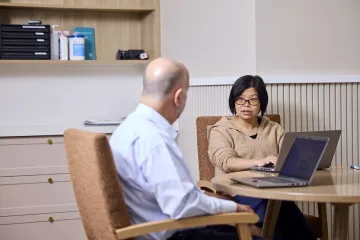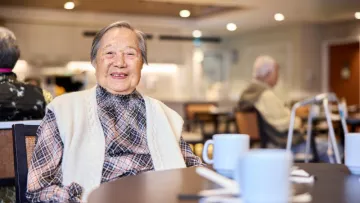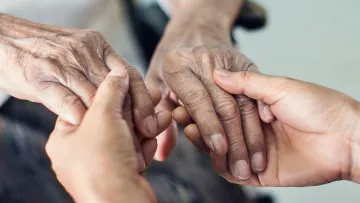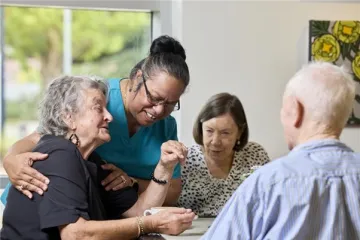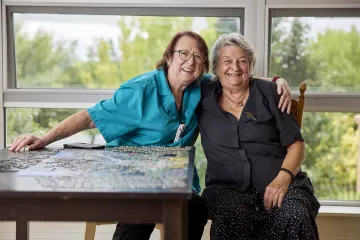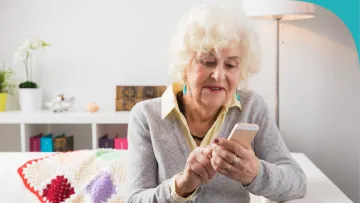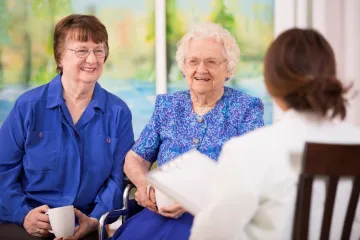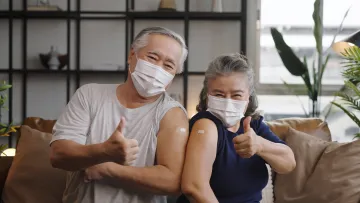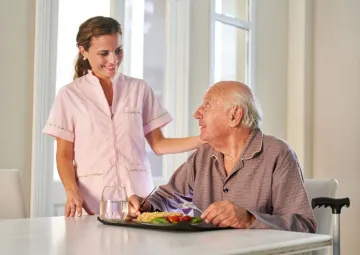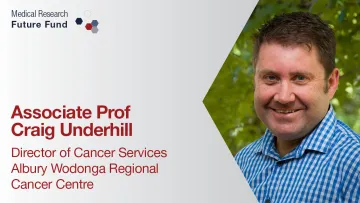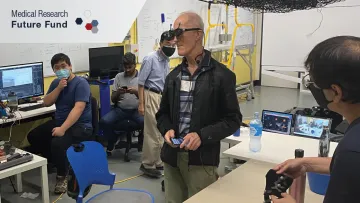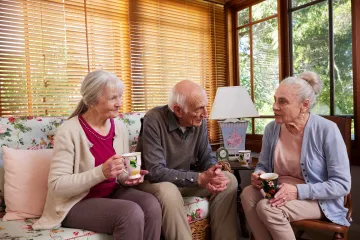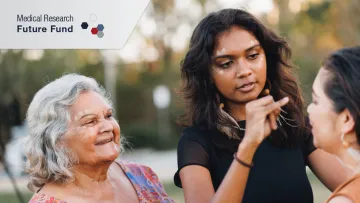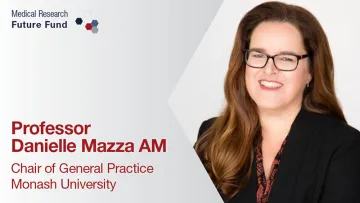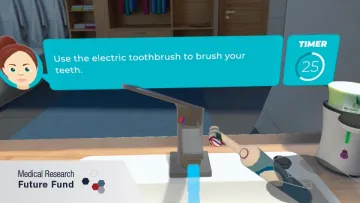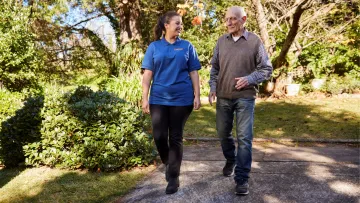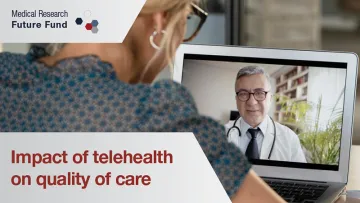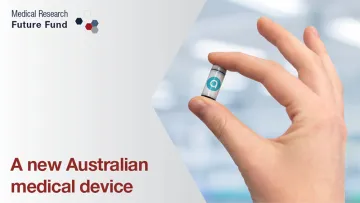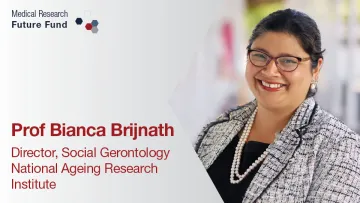Filter results
You can narrow down the results using the filters
Audience
Topics
Our work
Year
63 results
-
New requirement to audit Care Minutes Performance Statement
All residential aged care providers will be required to complete a new Care Minutes Performance Statement, which must be externally audited and submitted to the 2025–26 Aged Care Financial Report. Find out how to prepare for these new requirements. -
Resources and training available for the new Aged Care Act
The new Aged Care Act starts from 1 July 2025. It will place the rights of older people at the centre of the aged care system. -
Participate in a menu and mealtime review
Residential aged care providers can express interest in receiving a free, onsite menu and mealtime review from an accredited practising dietitian. The review will help you get ready for the new Aged Care Quality Standard 6: Food and nutrition, starting 1 July. Express interest by 9 June. -
Webinar: changes to care minutes funding and financial reporting
We are hosting a webinar for residential aged care providers on changes to care minutes funding and financial reporting. -
Expressions of interest for Independent Health and Aged Care Pricing Authority (IHACPA) expanded cost collection
IHACPA is looking for additional residential aged care providers to expand their Residential Aged Care Cost Collection 2024–25. Express your interest to help inform pricing advice. -
Apply now for the Aged Care Wages – Stage 3 Historical Leave Liabilities Grant
A grant opportunity is now open to help aged care providers cover some of the increased value of leave entitlements for workers affected by the Fair Work Commission’s Stage 3 decision from 1 January 2025. -
New staffing quality indicators for residential aged care
From 1 April 2025, residential aged care providers will collect data on 3 new staffing quality indicators. These make sure we measure the valuable input of enrolled nurses, allied health professionals and lifestyle officers. -
Be aware of aged care scams
We are aware of scammers targeting older people and their families by impersonating aged care providers. -
On-site pharmacists in residential aged care homes
Community pharmacies and aged care providers can now employ credentialed pharmacists to work on-site in residential aged care homes. -
Protect our older community with a COVID-19 vaccine
COVID-19 vaccination rates are lower than needed to protect our older community, particularly aged care residents. -
Helping newborn babies to start breathing
One in ten newborns need help to start breathing at birth. Australian company ResusRight is developing a world-first portable resuscitation monitor. The Nemo monitor shows paramedics and birth attendants how much air to give the baby, helping to avoid injury or death. -
Express interest in the Menu and Mealtime Review Program by 10 May
Are you a residential aged care provider? Express your interest in receiving a free menu and mealtime review. Expressions of interest close on 10 May 2024. -
Improving cancer outcomes by helping regional patients join clinical trials
Cancer specialist Associate Professor Craig Underhill is leading an ambitious program to improve cancer outcomes in regional Victoria by 2025. He is giving patients access to new treatments by increasing their access to clinical trials. -
Smart glasses could help people who are blind or vision impaired navigate by sound
Augmented reality glasses combine machine vision and AI to add digital information to what we see. Entrepreneur Robert Yearsley is adapting this technology to help people who are blind or vision impaired navigate by spatial sound. -
COVID-19 emergency leave extended for permanent aged care residents
We have extended emergency leave for permanent aged care residents for 12 months. This means residents who wish to temporarily relocate during COVID-19 outbreaks can continue to use emergency leave instead of social leave through to 31 December 2024. -
Measuring the wellbeing of First Nations youth
Australian youth are among the healthiest in the world, but First Nations youth continue to be left behind. To help close this gap, researchers are developing a wellbeing measure specifically for First Nations youth. -
Nurses are helping rural and regional women access contraception and medical abortion
Women living in rural and regional areas have more unplanned pregnancies and less access to contraception and medical abortion. Professor Danielle Mazza AM is trialling a nurse-led model of care to address this need. -
Virtual reality is helping brain injury survivors regain use of their arms and hands
Survivors of brain injuries caused by stroke and other serious events can lose function in their arms and hands. An Australian company is creating a virtual reality therapy system to help survivors regain the use of these limbs. -
Can AI personalise mental health treatments for university students?
University students can feel severe psychological distress before their exams. The Vibe Up trial uses artificial intelligence (AI) to find out if digital mental health therapies can help, and which therapies work best for each student. -
Aged care design ideas competition now open
The Reimagining Where We Live design ideas competition is now open for architects and designers to design an innovative aged care home and showcase what can be achieved with the Australian Government’s new Design Principles and Guidelines for aged care homes. -
Does using telehealth affect our healthcare?
Telehealth was an emergency response to the COVID-19 pandemic, allowing patients to consult with GPs by telephone or video under lockdown. Post-pandemic, telehealth is here to stay. Professors Rosemary Korda and Christine Phillips are finding out how using telehealth affects primary healthcare. -
A smart gas-sensing capsule invented in Australia could soon help people living with bowel syndromes
Doctors could soon use the smart Atmo Gas Capsule to diagnose and treat bowel syndromes, replacing invasive or hard to interpret methods. The Australian company Atmo Biosciences is developing and marketing this new device. -
mRNA therapies to stop heart disease
Associate Professor Xiaowei Wang wants to stop heart disease. To reach this goal, Xiaowei is developing mRNA therapies. She uses nanoparticles in nasal spray and with ultrasound to target these therapies to disease sites in the body. -
Reducing the stigma of elder abuse to improve older people’s health
Elder abuse causes declining physical and mental health in older people. But older people are often too ashamed to report it. Professor Bianca Brijnath is trialling a new model of care to help older people report abuse and improve their health. -
Finding a drug to protect the heart from damage by COVID-19
COVID-19 can be fatal for patients with heart disease. Even patients without heart disease can suffer damage to their heart. Bioengineer Professor James Hudson has found a drug which could protect our hearts from this damage.


